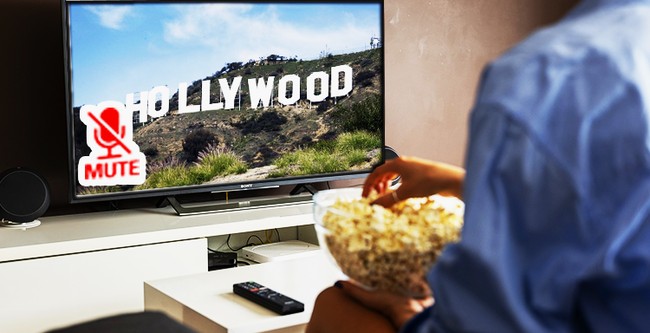Top Stories
Hollywood’s Controversial Take on Fascism Sparks Heated Debate

A recent article by Michael S. Schneider, the executive editor of Variety, has ignited a heated discussion about the portrayal of contemporary political issues in television. In his piece, Schneider questions how the media should reflect what he describes as rising fascism in the United States, particularly in relation to the policies of President Donald Trump and the actions of Immigration and Customs Enforcement (ICE).
Schneider’s argument suggests that television has a responsibility to depict the societal horrors he believes are unfolding. He specifically refers to what he sees as the oppressive actions of ICE, claiming that the agency conducts violent arrests without justification. Critics, however, argue that these arrests are often based on lawful grounds, targeting individuals in the U.S. illegally, many of whom have extensive criminal backgrounds. This has led to a broader debate about the authenticity of Schneider’s perspective and the implications for Hollywood storytelling.
Many commenters on social media have pointed out the contradictions in Schneider’s claims. One observer remarked, “If fascism were genuinely taking hold, Schneider’s article would not even be allowed to be published.” This sentiment reflects a growing frustration among some audiences who believe that the media, particularly in Hollywood, has become disconnected from mainstream American values.
Hollywood’s Response to Political Climate
The discourse surrounding Schneider’s article highlights a significant divide in how political narratives are crafted within the entertainment industry. Critics have expressed concern that upcoming television shows and films may increasingly lean towards liberal values, often depicting conservative characters as villains. This shift, some argue, risks alienating large segments of the audience who may not share these views.
The article also raises questions about what constitutes “real-life horrors.” Commenters challenged Schneider to specify what genuine experiences he and like-minded individuals are facing, emphasizing that many of their concerns seem to stem from a narrative rather than actual events. This has led to a perception among some that the current media landscape is driven more by fantasy and ideology than by objective reality.
As the debate continues, it appears that Hollywood’s approach to storytelling in light of real-world issues will remain a contentious topic. With ongoing discussions about representation and narrative integrity, the industry faces the challenge of balancing artistic expression with audience expectations.
In summary, Schneider’s article serves as a catalyst for a broader conversation about how political issues are portrayed on screen and the responsibility of media to reflect societal realities. As audiences increasingly engage with these topics, the potential for division or connection within the viewing public remains uncertain, but it is clear that the dialogue is far from over.
-

 Lifestyle3 months ago
Lifestyle3 months agoLibraries Challenge Rising E-Book Costs Amid Growing Demand
-

 Sports3 months ago
Sports3 months agoTyreek Hill Responds to Tua Tagovailoa’s Comments on Team Dynamics
-

 Sports3 months ago
Sports3 months agoLiverpool Secures Agreement to Sign Young Striker Will Wright
-

 Lifestyle3 months ago
Lifestyle3 months agoSave Your Split Tomatoes: Expert Tips for Gardeners
-

 Lifestyle3 months ago
Lifestyle3 months agoPrincess Beatrice’s Daughter Athena Joins Siblings at London Parade
-

 World3 months ago
World3 months agoWinter Storms Lash New South Wales with Snow, Flood Risks
-

 Science3 months ago
Science3 months agoTrump Administration Moves to Repeal Key Climate Regulation
-

 Science2 months ago
Science2 months agoSan Francisco Hosts Unique Contest to Identify “Performative Males”
-

 Business3 months ago
Business3 months agoSoFi Technologies Shares Slip 2% Following Insider Stock Sale
-

 Science3 months ago
Science3 months agoNew Tool Reveals Link Between Horse Coat Condition and Parasites
-

 Sports3 months ago
Sports3 months agoElon Musk Sculpture Travels From Utah to Yosemite National Park
-

 Science3 months ago
Science3 months agoNew Study Confirms Humans Transported Stonehenge Bluestones









